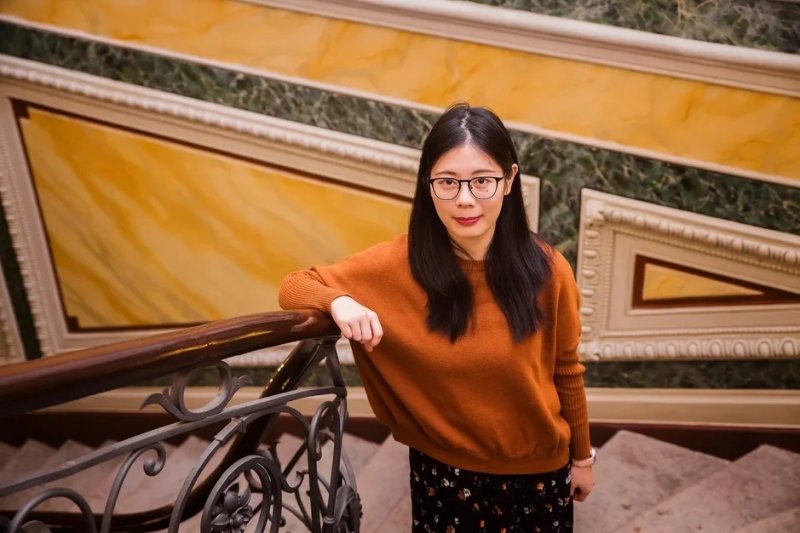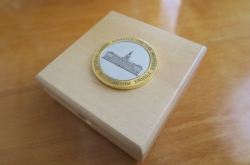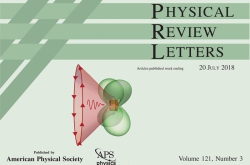You work with hybrid metal-dielectric structures. Recently, Laser & Photonics Reviews has published an article dedicated to this field, with you as the first author. So, why is your research focus so promising?
My field of study involves researching the optical properties of hybrid nanostructures and their applications. Hybrid structures combine the advantages of metal particles and dielectrics. I have to note that specialists of our Faculty of Physics and Engineering are really good at studying dielectrics, they work with dielectric nanoantennas, metasurfaces, etc. Such materials have great application prospects in many fields, including the development of new data recording devices and so on.
Structures based on metal particles also have many advantages in regard to practical application. The achievements in the field of plasmonics, an area of nanophotonics that is based on the optical properties of metallic nanostructures, paved the way for the development of supersensitive sensors, biological sensors and other devices that make use of the localization of electromagnetic fields at the nanoscale. Combining metal nanoparticles and dielectrics in a single nanostructure offers new improved properties: strong nonlinear optical properties, unidirectional scattering, etc. This also contributes to such materials' relevance.
You always have been focusing on photonics, haven't you?
This is quite a complex story. I started my Master's program in China, but after a year I chose a subject field that had to do with nanophotonics and came here to study at ITMO's Faculty of Physics and Engineering on an exchange program. That was three years ago. At that time, I started to work with the faculty's team on studying nanostructures, their optical properties, and ways of modifying them.
I spent a year in St. Petersburg as part of my exchange program, and it was then that I understood that ITMO University is a great place to continue my PhD program. I had to go back to China to complete my Master's program, but after that, I came back here.
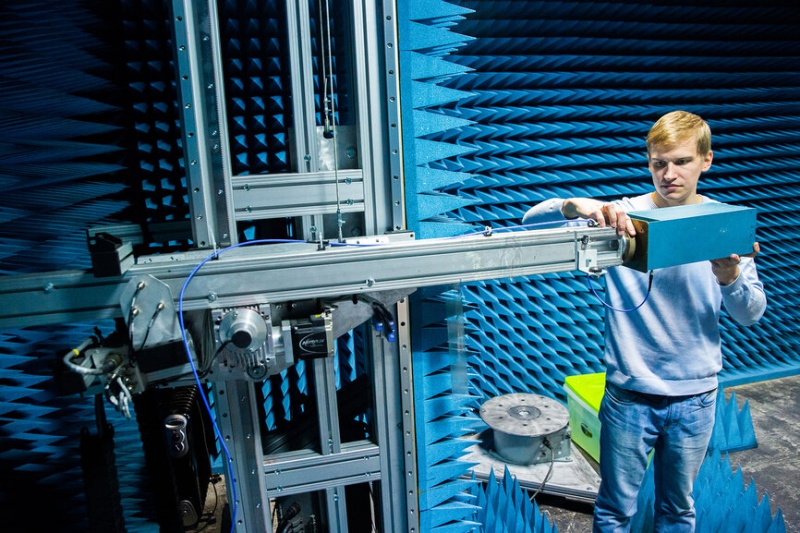
Still, my Bachelor's program didn't have anything to do with nanophotonics; it was the field of electronics that I focused on. Once I completed it, I had several subject fields to choose from. Knowledge in the field of electronics is relevant for optics as well, and I chose this field to continue my education at a different university whose Optics ranked the top in China.
What helped you make such a choice?
I believe that optics is more interesting: to a particular extent, you can do both theoretical and practical work at the same time. You can see the real results of your work in the laboratory. Electronics, on the other hand, is more about working for the industry, which is something completely different. In this case, you'll be facing quite a lot of restrictions, and sometimes, you won't be able to do what you're really interested in.
So, why exactly did you choose to continue your educational and scientific career in Russia?
In China, completing your Master's program takes three years. One year goes to obtaining fundamental education. That allowed me to fulfill all of my educational goals, which is exactly why I decided to participate in an exchange program and get some new experience. I looked into many opportunities and offers and finally found ITMO University's Metamaterials Laboratory. This laboratory really fits the development path that I chose. Here, they study nanophotonics and metamaterials, which was the focus of my Master's program. In the end, I joined a PhD program at ITMO, and I've been studying here for a year already.
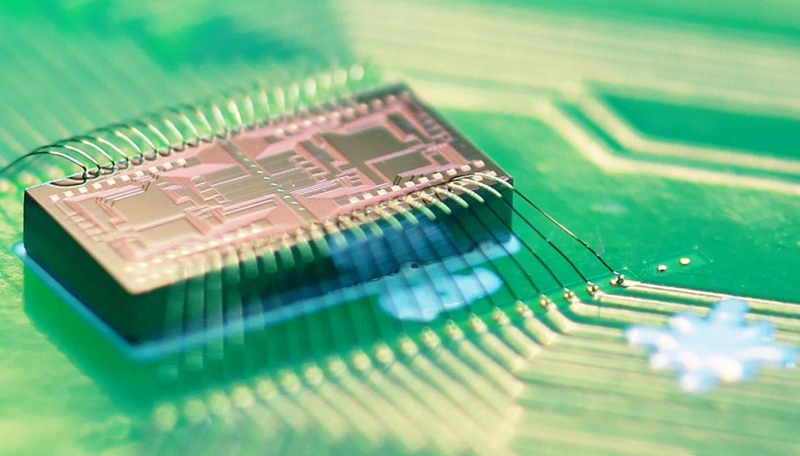
What are the key differences between education in Russia and China?
The educational system in China has a lot in common to what you have in Russia: it involves both theoretical and practical training, though we don't have lectures given to small groups where you can discuss what you've learned.
Most importantly, as we have a very big population in China, you always have a huge audience when you attend lectures: sometimes, it's about 200 people, and the lecturer is standing somewhere far away from you. Asking additional questions or clarifying particular issues, discussing anything with the lecturer is next to impossible.
Here in Russia, things are different. There are fewer students, so you can always inquire about some topics in detail or have a discussion with the one giving the lecture. What is more, and I can say this about our laboratory and faculty in particular, all lectures are dedicated to the topics of our research. For example, when we have lectures that clarify the essence of particular experiments, we also get tours to the laboratory. Obviously, we have lectures on the more fundamental issues, those that help accumulate the necessary groundwork for conducting your individual research. I guess this helps maintain the balance between fundamental training and practical work.
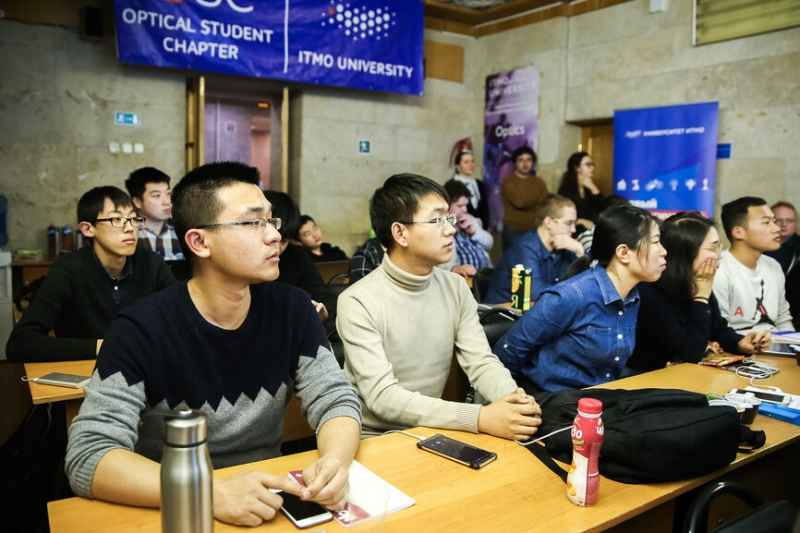
You may have heard about IEEE's initiative "Women in Photonics" that aims to support women who want to study this field. Was it hard for you to start your career in science? And have you ever faced any gender inequality issues in the course of your professional career?
When I go to various conferences, I don't see much difference between male and female scientists in photonics. Last year, I've been to two conferences, and both of the Chairs were women.
If I were to talk about my former laboratory in China, the number of male and female staff members was usually the same. Also, I never saw that they were treated any differently. Here, things seem to be similar: same students, same approach to education, where everyone is given equal opportunities.
As China's population is very large, we have a really high competition. What's more, all students spend their time at the same classrooms and thus get similar education. After you complete your Bachelor's program, you have to take the same exams, and then choose your supervisors; this is a path everyone has to take despite their gender.
What are you plans for the coming years?
Here at ITMO, I got a lot of experience, and I am definitely planning on continuing my research. In future, I will be looking for a postdoc position, either here or anywhere else. As I already said, hybrid structures is a very promising topic. Currently, we're accumulating experience of working on this kind of research. I believe that in the future, we'll manage to develop it into many different projects, including those that exist at the intersection of different fields: chemistry, biology and others, as well as make this research more applicable from the practical standpoint.
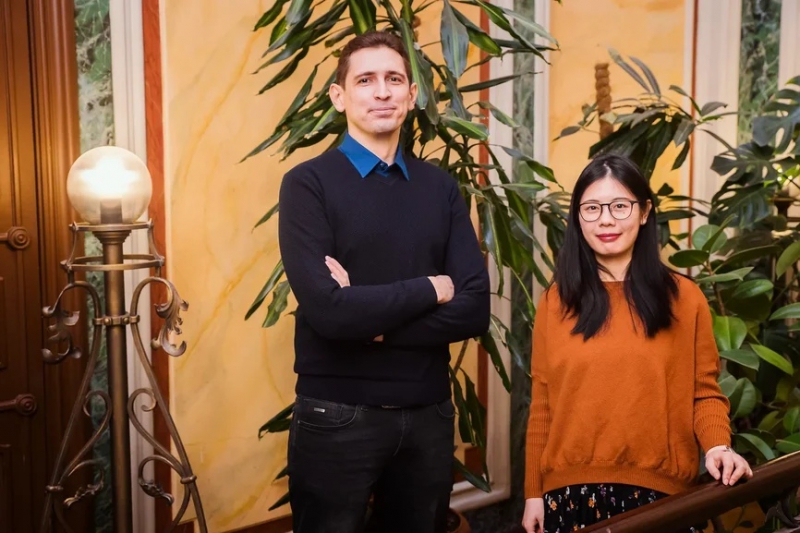
And what is your overall opinion about conducting research in Russia, and the job prospects for international scientists here?
At the very least, our laboratory and faculty offers good working conditions, everyone speaks English, the administration personnel included. This was very important for me, as I don’t speak Russian. What’s more, all workshops and lectures are also conducted in English, so I can easily discuss various issues with my colleagues.
As for the everyday life, like going shopping and simple stuff, I don't face any problems as well. For complicated communication, my supervisor and my colleagues really helped me a lot.
